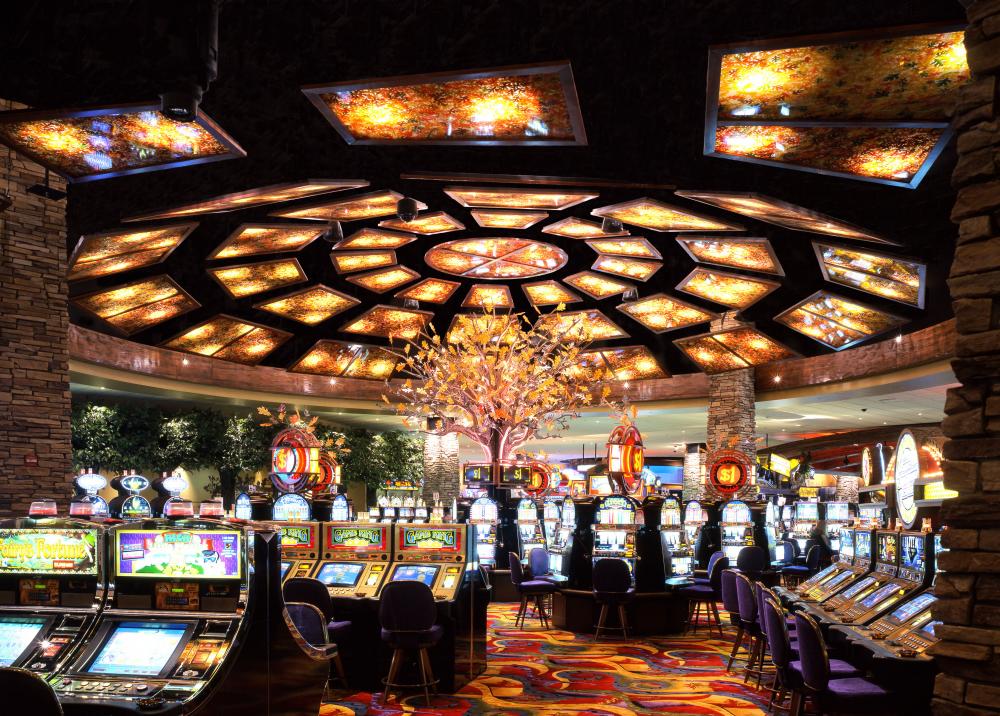
Betting has been an integral part of human entertainment for millions of years, developing through societies and periods to become the dynamic casino activities we know today. From the ancient Chinese and Romans, who engaged in different forms of betting and luck, to the sophisticated gaming floors of contemporary casinos, the attraction of risk and winning has fascinated individuals across the globe. The shift from basic dice games and rudimentary betting setups to the opulent environments of contemporary casinos reflects major strides in both social norms and technological.
As societies evolved, so too did the complexity of gambling activities, with casino games emerging as a distinct category of leisure and thrills. These activities have transformed from casual gatherings centered around traditional tables to sprawling, opulent establishments designed to lure players. Today, we delve into this captivating journey, studying how historical practices laid the groundwork for the varied and exciting casino activities that bring pleasure to millions worldwide.
spintax
Ancient Betting Traditions
Gambling has significant roots in human history, with indications of games of chance dating back to ancient societies. Archaeologists have uncovered that as far back as 3000 BC, the people of China were using rudimentary forms of gambling with dice made from ivory. Similarly, ancient Mesopotamians engaged in betting activities, often relying on the tossing of lots or dice to determine outcomes. These early forms of gambling served not only as recreation but also played crucial roles in social and cultural customs.
The Egyptians also took part in gambling activities, with games that included betting on the results of various occurrences, including athletic events and religious festivals. Artifacts such as dice and depictions of gamblers from ancient tombs demonstrate that gambling was a common pastime. It provided both leisure and a means of engaging in social connections, often linked to joyful occasions or important gatherings. This behavior revealed the universal appeal of chance and competition throughout the ages.
In ancient Rome, betting became a widespread practice among the populace, as evidenced by references in literature and the establishment of guidelines around certain games. Romans enjoyed a variety of gambling activities, from wagering on chariot races to playing games akin to modern-day board games. The legal framework surrounding these activities began to take shape, establishing the foundations for gambling regulations that would grow in the centuries to come. The fame of gambling during this period set the stage for the development of gambling house games in the future.
The Progression of Casino Games
Gambling games have gone through significant transformations from their origins to the modern-day entertainment offerings. In ancient civilizations, gaming was commonly linked to ceremonial practices, with games of dice found in the ancient Mesopotamian region and betting on the outcomes of events in ancient Rome. These early forms of gambling laid the basis for the organized games we see today. The transition from informal gambling to organized games took place as societies began forming rules and venues for wagering, showing cultural values and practices. BJ88 Casino
The medieval period saw the development of card games, which gained popularity among the nobility of Europe nobility. Games like first and baccarat became staples in social gatherings. The invention of printing technology further enabled the spread of playing cards, making them more available to the masses. As gambling houses began to multiply, these card games evolved into adaptations that catered to wider audiences, eventually leading to the creation of casinos as exclusive venues for gaming.
The 1900s marked a significant point in the evolution of casino games, with the rise of commercial casinos in Vegas and other gaming hubs. This era brought forth games like slot machines and modern versions of table games, complete with high-quality graphics and complex betting structures. The introduction of online casinos in the tail end of the 1990s also transformed the gaming industry, allowing players to access a great variety of casino games from the comfort of their homes. Today, casino games persist to develop, blending traditional elements with cutting-edge technology to create immersive experiences for players globally.
Modern Gambling Laws
In these years, the landscape of gambling regulations has developed substantially, particularly as technology and online gambling have become increasingly prevalent. Regulatory bodies around the globe have introduced various laws and standards to ensure that gaming activities are performed justly, with responsibility, and openly. These laws often include aspects such as licensing, marketing, player safeguards, and responsible gaming measures. Authorities aim to reduce issues such as gambling addiction and fraudulent activities while fostering a equitable gambling environment.
The emergence of internet gambling sites has necessitated a fresh approach to oversight. Many jurisdictions have established specific internet-based gambling structures that cater to online gaming, allowing operators to provide their services legally. These frameworks often demand operators to obtain licenses, follow strict security protocols, and offer customer support options to assist players. By vigilantly observing online activities, regulators can better protect consumers from risks and ensure that gaming is conducted in a protected manner.
Furthermore, contemporary gambling regulations are increasingly centering around responsible gambling strategies. Many gaming establishments and online platforms now implement features such as self-exclusion, deposit limits, and time-outs to help players manage their gaming habits. Awareness campaigns aimed at raising awareness about the risks of gaming are also frequent. As the industry continues to expand, the focus on responsible gambling continues to be a fundamental principle of regulatory efforts, reflecting a commitment to encouraging a safe and pleasant gaming experience for all players.